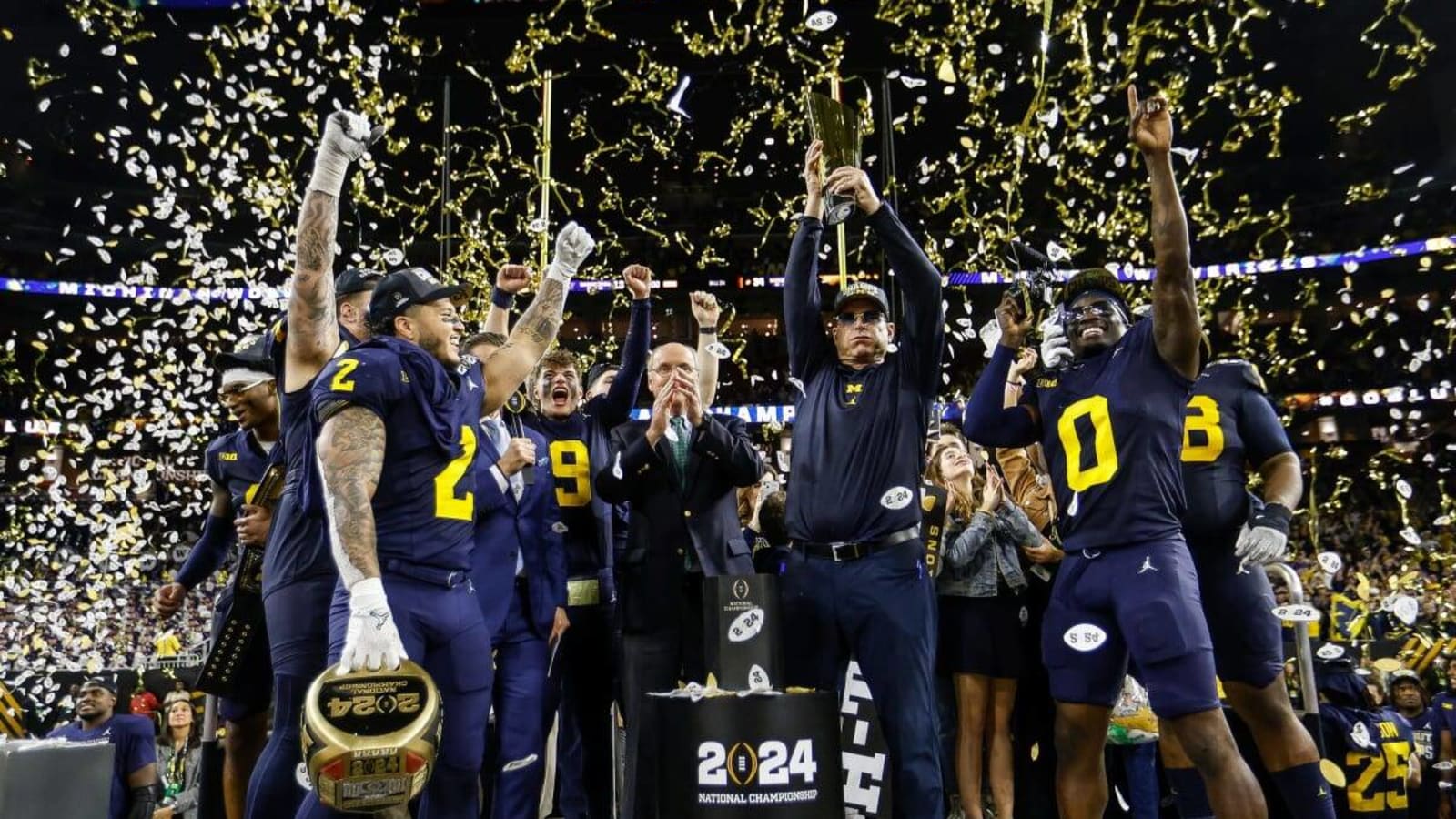
by Kyle Golik
With Michigan’s 34-13 win over Washington in the College Football Playoff National Championship Game, the debate has begun whether the NCAA will strip Michigan of the national championship or not based on Connor Stalions’ espionage findings.
The question of whether it can legally do it is another.
Over the years on various social media platforms, one of the best political memes was the subject of universal health care in the United States. The meme used the popular AMC drama Breaking Bad to depict how, if the United States had universal health care or if the setting was in one of many nations that do extend its citizens universal health care, how anticlimactic the series would be.
Before I even address the question that is at the center of much of the debate, let’s get a basic understanding of the arrangement between the NCAA and the College Football Playoff.
First and foremost, the NCAA and the College Football Playoff (CFP) are two separate legal entities. The CFP does not have any specific bylaw outlining the removal of a tournament champion from its championship. Many ardent Michigan supporters are pointing to this, with the same vitriol that pro-universal health care folks have used the Breaking Bad meme as the foundation of their argument.
The that actually needs to be answered is if the NCAA finds Michigan in the acts of espionage and strips the program of their NCAA regular season wins, would the CFP follow suit and strip Michigan of its 2023 championship?
The CFP demonstrated -by shutting out Florida State of its invitational - that they only care about the matchups they want to see, and not what transpired during the regular season itself. As long as you view the Playoff as how I see it as an invitational, what the NCAA does or doesn’t do to Michigan won’t play a factor in Michigan’s national championship.
The question that becomes more relevant is, does the NCAA even matter to college football as a sport in this day and age?
The CFP has asserted itself at the forefront and distinguished itself from the NCAA. Nowhere in its bylaws is there language about teams not being able to be selected to play in its tournament because they have been deemed ineligible by the NCAA. The CFP determines the champion - and who can play for the championship - not the NCAA.
The NCAA is growing more and more irrelevant to major college football. Athletes hit the transfer portal chasing NIL money, and the sport is truly the “Wild West” right now. Postseason games every year seem to experience more and more opt-outs. It will only be a matter of time before a player opts out of the CFP. The expansion roulette wheel has caused irrevocable damage to historic conferences and major universities trying to survive this extremely turbulent period.
The sport needs more than ever a strong centralized body to protect the schools participating in major college football. The decentralized model it currently lives in has a great disparity between the Big Ten and SEC at one end and the ACC and Big XII at the other. The future of the ACC now hangs in the balance.
The NCAA is only a tax shield at this point for the major universities. The quicker you begin to accept that Michigan won the 2023 CFP Invitational and that will always be true, you can move on from it. The CFP will not revoke the trophy. End of story.
The NCAA will most likely levy a suspension on Jim Harbaugh, and that is about as much flesh as it can possibly grab. The writing is on the wall for the NCAA. It is forever lost, for better or for worse.
More must-reads:
- Agent rips Packers amid Matt LaFleur contract negotiations
- Drake Maye using unique way to motivate Josh McDaniels
- The 'Most passes thrown by NFL season' quiz
Breaking News
Trending News
Customize Your Newsletter
 +
+
Get the latest news and rumors, customized to your favorite sports and teams. Emailed daily. Always free!








